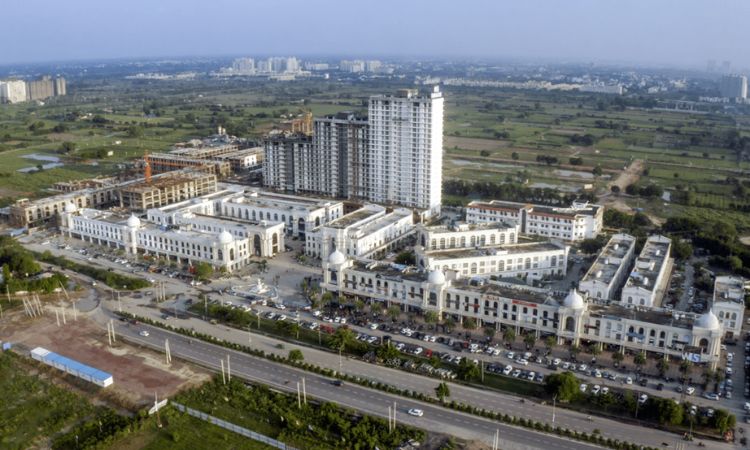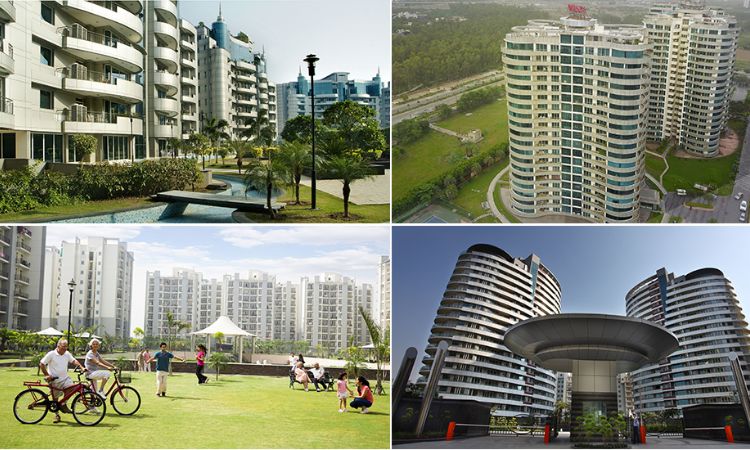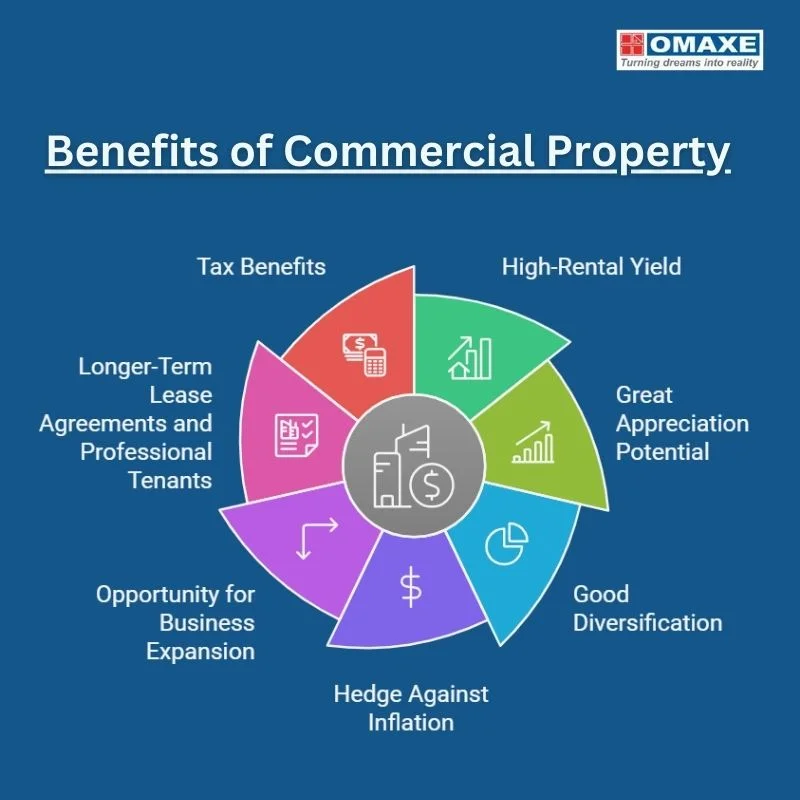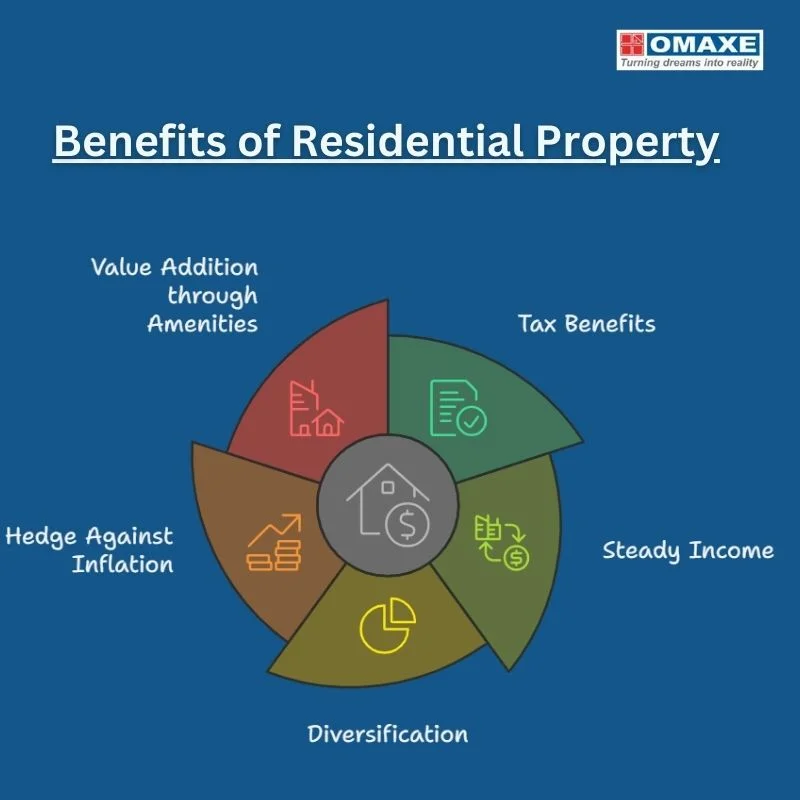The differences between commercial and residential properties are crucial to the success of seasoned real estate professionals as well as newcomers entering the market. The moment you get your first paycheck, there’s a spark that ignites in your mind. A Spark of not just spending that money to buy things but a great prospect of growing your wealth. The dreams of financial freedom set in and this is the perfect time for making a perfect investment.
Gone are those days of risky markets and risky ventures. In today’s time, the market of real estate is tall and strong and growing at a very fast pace. The real estate sector is the perfect financial investment for you. If you are an investor, a buyer, or simply curious about the real estate landscape, you will benefit from being aware of the distinction between these two types of properties.
But how to go in and start investing in it and what types of properties are there in the real estate sector? If you have queries like what’s the difference between commercial property and residential property and where to invest your hard-earned money, just keep reading and you will get your answers soon.
Table of Contents:
- What is Commercial Property?
- What is Residential Property?
- Types of Commercial and Residential Properties.
- Benefits of Investing in Commercial and Residential Property.
- Key Differences Between Commercial and Residential Properties.
- Things to Consider Before Buying Commercial and Residential Property.
- Conclusion
- FAQ’s
What is Commercial Property?

Immovable property used for industry is referred to as commercial property. Larger residential rental properties, land meant for profit, and buildings that housing businesses are all considered types of commercial property. Financing, taxation, and applicable regulations are all impacted when a property is classified as commercial property.
What is Residential Property?

A residential property is a place to live that offers comfort, security, and a feeling of belonging. While residential properties are primarily meant for personal use, commercial and industrial areas serve business purposes.
These buildings provide a variety of housing alternatives, including stylish apartments, luxurious apartment buildings, standalone homes, and modest townhouses.
Types of Commercial and Residential Properties
Types of Commercial Property:

- Office space: There are two main types of office buildings: suburban and urban. Skyscrapers and high-rise structures, some of which may be as large as several million square feet, are examples of urban office buildings that may be found throughout cities. Suburban office buildings are frequently grouped in office parks and are typically smaller in stature.
Office buildings can be multi-tenanted or single-tenanted, and many are built to suit. Additionally, they are divided into three classes: Class A, Class B, and Class C.
- Industrial property: The majority of industrial buildings are situated outside of metropolitan areas, particularly along major transportation routes, and accommodate industrial operations for a range of tenants. It is also possible to group the low-rise buildings into industrial parks. The properties are categorized into four types:
- Heavy manufacturing
- Light assembly
- Bulk warehouse
- Flex industrial
- Retail space: Retail refers to the commercial facilities which include the stores and eateries that we often visit. These can be single-use, independent structures, or multi-tenant (often with an anchor, or lead tenant, that helps draw people to the leased property). The retail industry is complex since several factors determine the sort of shopping center, such as its size, idea, types, number of tenants, and trading area.
Also Read: How to choose the right location for your commercial property: Strategic location
Types of Residential Property:

- Flats or Apartments: Part of a larger complex with multiple similar units, the flat offers a self-contained living space. These homes, which are the most desired real estate in India, are sometimes found in both high-rise and low-rise buildings.
- Bungalows: The majority of these kinds of residential structures are one-story homes. It’s a detached property that typically has a sloping roof. Built from the ground up, bungalows are among the best examples of independent living.
- Penthouse: A penthouse is an apartment situated in a high-rise structure on the top floor. These kinds of residential buildings provide the greatest facilities and high-end finishes, including cutting-edge flooring systems. It’s considered an emblem of luxury.
- Villas: Villas are private structures that are one story and have shared walls. These are the luxurious alternatives to row houses that fall under this category. For those who value communal living without having to share a space, these are perfect.
- Duplex: These residential buildings are constructed on two floors, each of which may have a separate entrance connected by stairs. Typically, one individual owns and sells this kind of home.
If you want to know the differences between an apartment and an independent house, which offers the best lifestyle? then read this informative blog to learn more about it.
Benefits of Investing in Commercial and Residential Property
Benefits of Commercial Property

1. High-Rental Yield:
Due to its high rental return, investing in commercial real estate might be advantageous if you’re a real estate investor rather than an end user. Depending on the location and kind of property, you may easily obtain an annual rental yield of 6–10% in a prime city.
2. Great Appreciation Potential:
You may enhance your earnings by making a wise investment in a commercial property in an area with rapid growth. Invest in property with phenomenal residential growth, and it won’t be long until demand for commercial real estate also increases.
3. Good Diversification:
For every investment portfolio, diversification is essential, and commercial real estate is a great way to achieve that. Businesses and private practitioners can lower risk and boost stability by adding commercial properties to their portfolios. Compared to other asset classes, commercial real estate operates differently, acting as a safety net during recessions and enhancing the durability of the entire portfolio.
4. Hedge Against Inflation:
It is possible to use commercial real estate as an inflation hedge. Real estate value rises with inflation, and rental rates are no exception. Therefore, to safeguard their source of income and maybe boost returns, owners of commercial real estate might modify lease terms and raise rental prices. Commercial real estate values frequently increase during economic upturns, providing chances for capital appreciation.
5. Opportunity for Business Expansion:
Purchasing commercial real estate also provides opportunities for business growth. Having a commercial property gives you access to ready-made space if you need it for your own business. You are free to end the lease and occupy the space whenever you decide to start a business.
6. Longer-Term Lease Agreements and Professional Tenants:
Tenants in commercial real estate typically sign long-term leases. This is because companies want to establish themselves in one place and stay there for a long period to get high exposure and revenue. For investors, long-term leasing may provide stability and consistent income.
7. Tax Benefits:
Investing in commercial real estate has tax advantages. You can deduct the interest you pay on the loan you took out to buy commercial real estate. You can subtract the processing fees you spend when applying for a loan. This is only deductible in the year that the construction is finished and you take ownership of the property. In addition, you are entitled to five equal instalments for any interest paid during the year before obtaining ownership of the property.
Benefits of Residential Property

1. Tax Benefits:
Investing in residential real estate also offers tax advantages that might result in significant financial savings. For example, you may be able to deduct interest from your taxes on your mortgage, real estate taxes, and maintenance and repair costs.
2. Steady Income:
Stream The potential for a consistent income stream is one of the main benefits of investing in residential real estate. You might have a steady flow of rental money if you decide to rent out the property.
3. Diversification:
Investing in residential real estate may be an excellent way to diversify your financial holdings. When it comes to investing, diversification is crucial since it lowers the chance of losses.
4. Hedge Against Inflation:
Investing in residential real estate can also act as an inflation hedge. Over time, inflation reduces the purchasing power of money, which can lower the value of your investments. On the other hand, the rising cost of real estate tends to offset inflation, protecting your investment from inflation.
5. Value Addition through Amenities:
Adding amenities to a residential home is another way to increase its value as an investor. In addition to raising the property’s value, features like parks, gyms, swimming pools, and security systems draw in potential tenants or purchasers.
Key Differences Between Commercial and Residential Properties:
| Point of Difference | Residential property | Commercial property |
|---|---|---|
| Purchasing Formalities | It is easier to purchase residential property than to purchase commercial property since there aren’t as many legalities involved. | A commercial property requires a buyer to go through many formalities, which adds complexity to the transaction. |
| ROI | Short-term rental periods for residential properties lead to unstable sources of income. | The long-term rental or lease of commercial property generates a consistent income. |
| Depreciation | Residential properties depreciate slowly. | Commercial properties depreciated faster |
| Capital Appreciation | Residential property tends to rise in value over time, making it a profitable venture to invest in. | High-growth potential locations might see a gradual increase in the value of commercial property, offering a positive return on investment. |
| Competition | The competition is high in the residential real estate sector. | Commercial properties can be used for different business purposes, resulting in lower competition. |
Things to Consider Before Buying Commercial and Residential Property
Purchasing residential and commercial real estate requires different perspectives because of their various purposes and needs. The following is a list of considerations for each type:

1. Commercial Property
There is a significant surge in demand for commercial real estate in India due to the country’s increasing population growth. For this reason, making investments in commercial real estate may help you achieve significant returns on your capital. The process of purchasing commercial real estate is not as difficult as it may seem.
Before deciding to buy a commercial property, you should take into account a few of these tips:
- Market Research
- Assess the Location
- Lease Structure
- Value Assessment
- Recognize the Element of Risk
2. Residential Property
Purchasing a home is an important financial and personal choice. To make an informed and sensible investment, you must take into account several aspects. Before purchasing residential real estate, take into account the following crucial factors:
- Budget
- Location
- Property Type
- Financing Options
- Resale Value
Conclusion
There is no definitive answer as to which type of real estate investment yields higher returns: residential or commercial. Both choices have advantages and things to consider. Commercial real estate often attracts professional tenants, offers larger rental returns, and provides more stability.
Residential properties, on the other hand, provide chances for both flexible use and capital appreciation. The choice to invest in residential or commercial real estate ultimately comes down to individual preferences, financial goals, and priorities.
FAQ’s
Q1. What is a residential property?
A.1 A residential property is a place to live that offers comfort, security, and a feeling of belonging. While residential properties are primarily meant for personal use, commercial and industrial areas serve business purposes.
Q2. What is a commercial property?
A.2 Immovable property used for industry is referred to as commercial property. Larger residential rental properties, land meant for profit, and buildings that housing businesses are all considered types of commercial property.
Q3. Is commercial property costly compared to residential property?
A.3 Commercial property is more expensive than residential property. Municipalities incur excessive development charges. Commercial projects are subject to strict guidelines and restrictions apart from that. There may be additional costs, such as those for parking facilities and specialised infrastructure.
Q4. Which type of property gives more rate of return on investment?
A.4 Take into account variables including your risk tolerance, expected rental income, property value, and any prospective tax benefits. While residential properties provide more stability and maybe a bigger pool of possible renters, business properties usually produce better rental income.



1 Comment
Comments are closed.